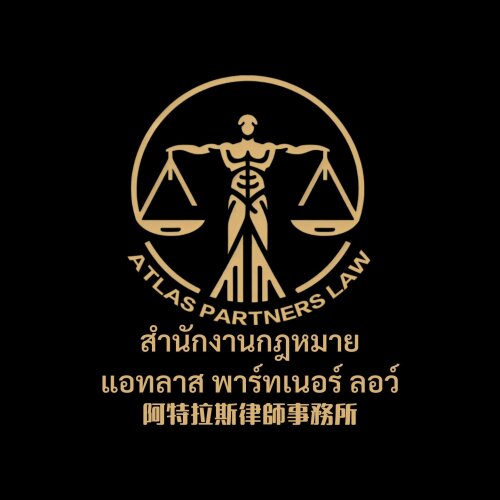ทนายความ การจ้างภายนอก ที่ดีที่สุดใน เชียงใหม่
แบ่งปันความต้องการของคุณกับเรา รับการติดต่อจากสำนักงานกฎหมาย
ฟรี ใช้เวลา 2 นาที
รายชื่อทนายความที่ดีที่สุดใน เชียงใหม่, ประเทศไทย
1. เกี่ยวกับกฎหมายการจ้างภายนอกในเชียงใหม่, ประเทศไทย
การจ้างภายนอกหรือ outsourcing คือการให้บุคคลหรือองค์กรภายนอกทำงานบางส่วนแทนพนักงานภายในองค์กร
กฎหมายหลักที่บังคับใช้ในเชียงใหม่เหมือนทั่วประเทศประกอบด้วย พระราชบัญญัติคุ้มครองแรงงาน พ.ศ. 2541 และ ประมวลกฎหมายแพ่งและพาณิชย์ โดยเฉพาะส่วนที่เกี่ยวกับสัญญาจ้างและบริการ
นโยบายด้านการจ้างภายนอกต้องเคารพสิทธิแรงงาน สวัสดิการ และการคุ้มครองข้อมูลส่วนบุคคลที่เกี่ยวข้องในสัญญากับผู้ให้บริการภายนอก
2. ทำไมคุณอาจต้องการทนายความ
-
สถานการณ์ในเชียงใหม่ที่โรงแรมหรือรีสอร์ทจ้างบริการภายนอก เช่น แม่บ้านและพนักงานทำความสะอาด การทบทวนสัญญาและการกำหนดหน้าที่ชัดเจนเป็นสิ่งจำเป็นเพื่อป้องกันการเกิดสถานะลูกจ้างที่ซับซ้อน
ทนายความจะช่วยตรวจสอบเงื่อนไขเวลา ค่าแรง และสวัสดิการว่าถูกต้องตามกฎหมายแรงงานหรือไม่ และช่วยออกแบบสัญญาให้สอดคล้องกับข้อบังคับของเชียงใหม่
-
กรณีบริษัท IT ในเชียงใหม่จ้างผู้รับเหมาภายนอกพัฒนาซอฟต์แวร์ เพื่อหลีกเลี่ยงการสวมสิทธิ์งานและเพื่อกำหนดขอบเขตงานที่ชัดเจน
ทนายความช่วยร่าง SLA และสัญญาความลับ (NDA) พร้อมกำหนดการส่งมอบและการคุ้มครองข้อมูลส่วนบุคคล
-
กรณีจ้างงานต่างด้าวในเชียงใหม่ มีข้อกำหนดด้านใบอนุญาตทำงานและข้อกำหนดการจ้างงานที่ต้องปฏิบัติตาม
ทนายความสามารถตรวจสอบการให้ใบอนุญาตทำงาน ตรวจสอบสัญญาและค่าใช้จ่ายที่เกี่ยวข้องกับแรงงานต่างด้าว
-
กรณีข้อมูลส่วนบุคคลถูกนำไปประมวลผลโดยผู้ให้บริการภายนอก เพื่อให้สอดคล้องกับ PDPA
ทนายความช่วยออกแบบมาตรการคุ้มครองข้อมูลส่วนบุคคล และสัญญาความปลอดภัยข้อมูลที่ชัดเจน
-
กรณีข้อพิพาทกับผู้ให้บริการภายนอกในเชียงใหม่ เช่น ไม่ปฏิบัติตามสัญญาหรือข้อกำหนดด้าน SLA
ทนายความจะช่วยวางแผนแนวทางระงับข้อพิพาทและเตรียมเอกสารสำหรับการดำเนินคดีหรือต่อรอง
3. ภาพรวมกฎหมายท้องถิ่น
กฎหมายที่ใช้บังคับในเชียงใหม่ สาระสำคัญเกี่ยวกับการจ้างภายนอกประกอบด้วยกฎหมายแรงงานทั่วไปที่บังคับใช้อยู่ทั่วประเทศ โดยเชียงใหม่เป็นพื้นที่ที่ผู้ประกอบการต้องปฏิบัติตามเช่นกัน
พระราชบัญญัติคุ้มครองแรงงาน พ.ศ. 2541 เน้นความปลอดภัยในการทำงาน สภาพการจ้าง และการชดเชยกรณีเกิดอุบัติเหตุ ซึ่งมีผลบังคับใช้ในจังหวัดเชียงใหม่เช่นเดียวกับกรุงเทพฯ และต่างจังหวัด
พระราชบัญญัติคุ้มครองข้อมูลส่วนบุคคล พ.ศ. 2562 คุมการประมวลผลข้อมูลส่วนบุคคลในสัญญาจ้างภายนอก จับตามมาตรการคุ้มครองข้อมูล และสิทธิของผู้ถูกประมวลผล ในเชียงใหม่ต้องปฏิบัติตามอย่างเคร่งครัด
“PDPA เน้นการคุ้มครองข้อมูลส่วนบุคคลในทุกกระบวนการประมวลผล โดยเฉพาะเมื่อมีการถ่ายโอนข้อมูลไปยังผู้ให้บริการภายนอก”
ประมวลกฎหมายแพ่งและพาณิชย์ กำหนดพื้นฐานของสัญญาจ้างและบริการ รวมถึงข้อกำหนดเรื่องการรับผิดชอบ และการเลิกสัญญา ซึ่งใช้กับการจ้างภายนอกทั่วประเทศรวมถึงเชียงใหม่
แหล่งอ้างอิง:
- ประมวลกฎหมายแพ่งและพาณิชย์ - Krisdika
- กรมสวัสดิการและคุ้มครองแรงงาน - กระทรวงแรงงาน
- สำนักงานคุ้มครองข้อมูลส่วนบุคคล - PDPA
4. คำถามที่พบบ่อย
อะไรคือการจ้างภายนอกและต่างจากการจ้างพนักงานประจำอย่างไร
การจ้างภายนอกหมายถึงการมอบงานให้ผู้ให้บริการภายนอกทำงานแทนพนักงานภายในองค์กร
ส่วนใหญ่เป็นสัญญาให้บริการและมีระยะเวลาชัดเจน ส่วนการจ้างพนักงานประจำเป็นการมีพนักงานในองค์กรโดยตรง
อย่างไรที่บริษัทเชียงใหม่สามารถเริ่มกระบวนการจ้างภายนอกอย่างถูกกฎหมาย
เริ่มจากกำหนดขอบเขตงานและเลือกผู้ให้บริการที่ผ่านการประเมินความน่าเชื่อถือ
ต่อมาควรทบทวนสัญญาเพื่อสอดคล้องกับกฎหมายแรงงาน และ PDPA ก่อนลงนาม
เมื่อไหร่ควรปรึกษาทนายก่อนทำสัญญาจ้างภายนอก
เมื่อมีข้อสงสัยเรื่องสัญญา ค่าแรง หรือการคุ้มครองข้อมูลส่วนบุคคล
โดยเฉพาะกรณีที่มีข้อมูลส่วนบุคคลของพนักงานถูกโอนให้ผู้ให้บริการภายนอก
ที่ไหนพบข้อบังคับด้านข้อมูลส่วนบุคคลเมื่อใช้บริการ outsourcing
ข้อบังคับหลักอยู่ใน PDPA ซึ่งบังคับใช้อย่างชัดเจนสำหรับการประมวลผลข้อมูลส่วนบุคคล
นอกจากนี้ ควรตรวจสอบสัญญา NDA และข้อกำหนดความปลอดภัยข้อมูลกับผู้ให้บริการ
ทำไมสัญญาการจ้างภายนอกถึงต้องระบุหน้าที่ เวลา และผลตอบแทนชัดเจน
เพื่อป้องกันความคลุมเครือและลดความเสี่ยงทางกฎหมาย
รวมถึงการกำหนด SLA และการชดเชยถ้าผิดสัญญาอย่างเป็นรูปธรรม
สามารถทนายช่วยตรวจสอบความถูกต้องของสัญญาอย่างไร
ทนายจะตรวจทานข้อผูกพัน และความเสี่ยงทางกฎหมายที่อาจเกิดขึ้น
เขาจะช่วยปรับปรุงข้อความให้สอดคล้องกับกฎหมายไทยและบริบทเชียงใหม่
ควรคำนึงถึงค่าใช้จ่ายในการจ้างทนายอย่างไร
ตรวจสอบโครงสร้างค่าใช้จ่ายล่วงหน้า เช่น ค่าปรึกษา ค่าเขียนสัญญา และค่าเจรจา
ขอประมาณการรวมทั้งหมดพร้อมเงื่อนไขการชำระก่อนเริ่มงาน
ระยะเวลาโดยประมาณในการตรวจสอบและร่างสัญญาจะนานแค่ไหน
กระบวนการร่างและทบทวนทั่วไปอยู่ที่ 1-3 สัปดาห์ ขึ้นกับความซับซ้อน
หากมีประเด็น PDPA หรือข้อพิพาทจะใช้เวลานานขึ้นเล็กน้อย
คุณสมบัติที่ต้องมีของทนายความด้านการจ้างภ Outsourcing ในเชียงใหม่คืออะไร
ควรมีความเข้าใจด้านกฎหมายแรงงานไทย ประสบการณ์กับสัญญาการจ้างภายนอก
มีความรู้เรื่อง PDPA และการคุ้มครองข้อมูลส่วนบุคคลด้วย
ความแตกต่างระหว่างการจ้างภายนอกกับการจ้างแบบโครงสร้างภายในองค์กรคืออะไร
จ้างภายนอกเป็นการวางงานให้ผู้ให้บริการภายนอกดำเนินการ
การจ้างภายในคือการมีพนักงานในองค์กรเอง
ข้อพิพาทเกี่ยวกับการจ้างภายนอกควรยุติอย่างไรในศาลแรงงานเชียงใหม่
เริ่มจากการเจรจาและไกล่เกลี่ย หากไม่สำเร็จสามารถยื่นฟ้องต่อศาลแรงงานได้
ทนายจะช่วยเตรียมเอกสารหลักฐานและแทนคุณในกระบวนการศาล
รูปแบบการคุ้มครองข้อมูลส่วนบุคคลในกระบวนการจ้างภายนอกคืออะไร
ต้องมีขอบเขตการใช้งานข้อมูล ช่วงเวลาการเก็บรักษา และมาตรการความปลอดภัย
ควรรวม NDA และข้อกำหนดการประมวลผลข้อมูลในสัญญาบริการ
5. ทรัพยากรเพิ่มเติม
-
กรมสวัสดิการและคุ้มครองแรงงาน - กระทรวงแรงงาน
https://www.labour.go.th -
สำนักงานคุ้มครองข้อมูลส่วนบุคคล - PDPA
https://www.pdpa.go.th -
สำนักงานประกันสังคม
https://www.sso.go.th
6. ขั้นตอนถัดไป
- ขั้นตอนที่ 1 ระบุความต้องการจ้างภายนอก และขอบเขตงานอย่างชัดเจนในองค์กรเชียงใหม่ ใช้เวลาประมาณ 1-2 สัปดาห์
- ขั้นตอนที่ 2 รวบรวมข้อบังคับที่เกี่ยวข้อง เช่น กฎหมายแรงงาน PDPA และข้อกำหนดด้านการจ้างงานของจังหวัด
- ขั้นตอนที่ 3 ประเมินผู้ให้บริการภายนอกที่มีความเชี่ยวชาญในเชียงใหม่ ผ่านการสืบค้นอ้างอิงและสอบถามลูกค้าปัจจุบัน
- ขั้นตอนที่ 4 ปรึกษาทนายความเพื่อร่างหรือทบทวนสัญญาและ NDA พร้อมตรวจสอบ SLA
- ขั้นตอนที่ 5 ตรวจสอบมาตรการคุ้มครองข้อมูลส่วนบุคคลและการประกันความปลอดภัยข้อมูลของผู้ให้บริการ
- ขั้นตอนที่ 6 เจรจาเงื่อนไขค่าใช้จ่ายและระยะเวลาการส่งมอบงาน
- ขั้นตอนที่ 7 เซ็นสัญญาและติดตามการปฏิบัติตามเงื่อนไข พร้อมกำหนดกระบวนการทบทวนประจำปี
Lawzana ช่วยคุณค้นหาทนายความและสำนักงานกฎหมายที่ดีที่สุด ใน เชียงใหม่ ผ่านรายชื่อผู้เชี่ยวชาญด้านกฎหมายที่มีคุณสมบัติเหมาะสมที่คัดสรรและตรวจสอบล่วงหน้า แพลตฟอร์มของเรานำเสนอการจัดอันดับและโปรไฟล์โดยละเอียดของทนายความและสำนักงานกฎหมาย ช่วยให้คุณเปรียบเทียบตามสาขากฎหมาย รวมถึง การจ้างภายนอก ประสบการณ์ และความคิดเห็นของลูกค้า
แต่ละโปรไฟล์ประกอบด้วยคำอธิบายเกี่ยวกับสาขากฎหมายของสำนักงาน รีวิวจากลูกค้า สมาชิกในทีมและหุ้นส่วน ปีที่ก่อตั้ง ภาษาที่พูด ที่ตั้งสำนักงาน ข้อมูลการติดต่อ การมีตัวตนบนโซเชียลมีเดีย และบทความหรือแหล่งข้อมูลที่เผยแพร่ สำนักงานส่วนใหญ่บนแพลตฟอร์มของเราพูดภาษาอังกฤษและมีประสบการณ์ทั้งในเรื่องกฎหมายท้องถิ่นและระหว่างประเทศ
ขอใบเสนอราคาจากสำนักงานกฎหมายชั้นนำ ใน เชียงใหม่, ประเทศไทย — รวดเร็ว ปลอดภัย และไม่ยุ่งยาก
ข้อจำกัดความรับผิดชอบ:
ข้อมูลที่ให้ไว้ในหน้านี้มีวัตถุประสงค์เพื่อเป็นข้อมูลทั่วไปเท่านั้นและไม่ถือเป็นคำแนะนำทางกฎหมาย แม้ว่าเราจะพยายามตรวจสอบความถูกต้องและความเกี่ยวข้องของเนื้อหา แต่ข้อมูลทางกฎหมายอาจเปลี่ยนแปลงได้ตามกาลเวลา และการตีความกฎหมายอาจแตกต่างกันไป คุณควรปรึกษาผู้เชี่ยวชาญด้านกฎหมายที่มีคุณสมบัติเหมาะสมเพื่อขอคำแนะนำเฉพาะสำหรับสถานการณ์ของคุณเสมอ
เราปฏิเสธความรับผิดทั้งหมดสำหรับการกระทำที่ทำหรือไม่ทำตามเนื้อหาในหน้านี้ หากคุณเชื่อว่าข้อมูลใดไม่ถูกต้องหรือล้าสมัย โปรด contact us และเราจะตรวจสอบและแก้ไขตามความเหมาะสม








